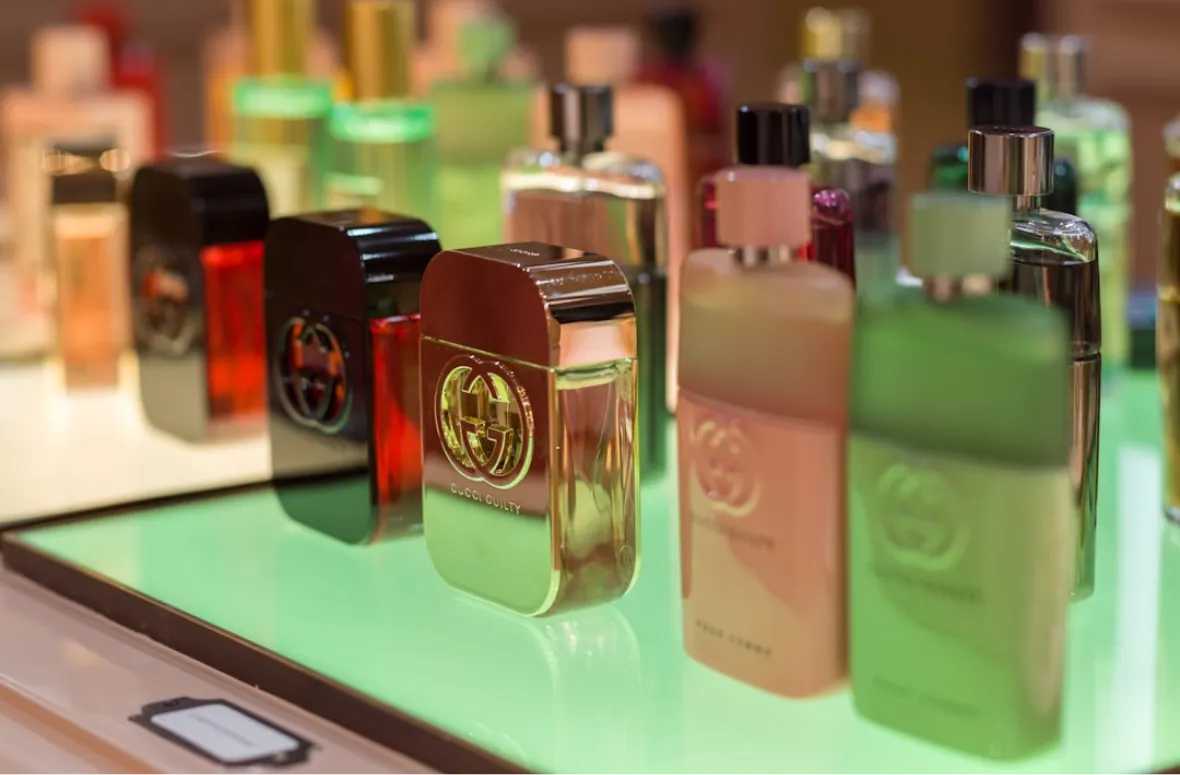Table of Contents
When it comes to importing cologne and cosmetics, one of the most critical concerns is ensuring compliance with regulations. Whether you’re an importer or a business seeking to bring cosmetics and perfume into the U.S., understanding what certifications and requirements are necessary is essential.
Importing perfume and cosmetic products involves meeting a series of rules to guarantee that the products are safe for use and comply with both domestic and international regulations.
The process of importing perfume and cosmetics involves various stakeholders, such as suppliers, customs brokers, and regulators. These parties must adhere to strict guidelines to ensure that the products meet safety standards and quality controls. For companies wishing to import fragrances and cosmetics, the U.S. Food and Drug Administration (FDA) plays a crucial role in regulating these products to ensure consumer safety.
In this article, we will explore the essential certifications and requirements involved in importing cologne and cosmetics, the FDA’s role in the process, and what you need to know to stay compliant. Let’s dive into the various aspects of importing cosmetics and perfume and the necessary certifications that must be acquired.
Importing Perfume and Cosmetics: Key Considerations

Importing perfume and cosmetics into the United States requires careful planning and knowledge of specific regulations. These products must meet a set of standards to ensure their safety, effectiveness, and proper labeling. Importers should be aware of both the FDA’s regulations and customs procedures that govern these products.
Importers are responsible for ensuring that the cosmetic products they bring into the U.S. meet all safety and labeling requirements. A key component of this process is the FDA approval for cosmetics, which ensures that the products are free from harmful ingredients and meet consumer safety standards. The cosmetic act of 1938 prohibits the sale of unsafe or mislabeled products in the U.S.
Additionally, importers must be aware of the country of origin and adhere to fair packaging laws. These regulations ensure that consumers are informed about where the product comes from and its contents, and they play a critical role in ensuring transparency in the marketplace.
What Is Required for FDA Approval of Imported Cosmetics?
When importing cosmetics, one of the first steps is obtaining approval from the Food and Drug Administration (FDA). The FDA ensures that the products are safe for use by checking the ingredients, labeling, and claims made by the product. Products must be labeled accurately to ensure transparency for consumers, and any false or misleading claims can result in the product being recalled or removed from the market.
In many cases, cosmetic ingredients must undergo safety evaluations and meet FDA requirements before they can be used in products. The FDA requires that any cosmetic ingredient used must not pose a risk to consumers, and testing may be required to prove the product’s safety.
FDA Approval for Imported Cosmetics and Perfume
Importing perfume and cosmetics requires specific certifications, including obtaining FDA approval. FDA approval is essential for the safety and reliability of imported products, ensuring that all cosmetic products and perfume comply with U.S. standards.
The FDA oversees the regulation of cosmetic products, including perfumes, to ensure they are free from prohibited ingredients. The FDA regulations stipulate that all cosmetic ingredients be tested for safety and must be adequately labeled. For importers, this means following strict guidelines, especially when dealing with sensitive products like perfume.
FDA approval is mandatory for importing cosmetics from various countries, including importing cosmetics from China. These products must meet all the regulatory requirements before they can be sold in the U.S. market.
Cosmetic Ingredient Safety and FDA Testing Exemption

For many cosmetic products, certain ingredients may be exempt from specific FDA testing requirements. However, these exemptions are generally limited to certain ingredients and formulations. Importers need to be familiar with which ingredients may require additional testing or certifications, particularly for ingredients that are classified as color additives or other regulated substances.
The FDA has a voluntary cosmetic registration program, where importers can submit their products for additional scrutiny to ensure they meet all regulations. It is highly recommended that importers seek certification through this program to guarantee their products are safe for consumers.
Import Duty and Taxes on Cosmetic Products
Another important factor to consider when importing perfume and cosmetics is the import duty and taxes imposed on these goods. Importers must be prepared to pay customs duties when bringing products into the U.S. These duties are determined by the harmonized tariff schedule, which outlines the appropriate tariff for each product category.
USA customs clearance plays a critical role in this process, ensuring that imported goods meet all legal requirements before entering the market. To avoid delays or issues with customs, importers should work closely with a customs broker, who can help navigate the import process and ensure that all fees and taxes are paid in full.
Also Read: Benefits and Considerations of Independent Living Communities
How to Meet Safety Information Requirements for Cosmetic Ingredients
One of the key components of the FDA approval process is ensuring that cosmetic ingredients meet safety standards. Cosmetic labeling requirements include providing clear information about the product’s ingredients and any potential risks.
It is essential for importers to keep records of safety information of cosmetic ingredients and ensure that any product they import does not contain any prohibited ingredients. Additionally, testing exemption requirements for perfume must be carefully followed, ensuring that imported products do not pose a risk to consumers.
Understanding U.S. Customs Clearance for Cosmetics

U.S. customs clearance is a necessary step in the importing process for both cosmetics and perfume. Before any cosmetic products can enter the U.S., they must undergo a thorough customs inspection. This process ensures that the products comply with all U.S. laws and rules, such as those established by the FDA.
Importers must also submit cosmetic products to USA customs clearance to confirm that they are classified correctly. Products are classified based on their ingredients and intended use, and it is crucial to ensure that they are properly documented and labeled to prevent delays.
Frequently Asked Questions About Importing Perfume and Cosmetics
Many businesses have questions when it comes to importing perfume and cosmetics. The following are a few of the most common queries:
- What certifications do I need to import perfume and cosmetics?
Importers must ensure that products are FDA-approved, meet all safety standards, and comply with U.S. customs regulations. - Can I import cosmetics from China?
Yes, but they must meet FDA regulations and undergo customs clearance. - What if my products contain color additives?
For color additives to be used in cosmetic products, they must be approved by the FDA. - Do I need to register my cosmetics with the FDA?
While registration is voluntary, it is highly recommended for ensuring the products meet safety standards.
The Role of FDA in Cosmetic Ingredient Testing
The FDA plays an essential role in the testing and regulation of cosmetic ingredients. Before any product is offered for sale to customers, they make sure it satisfies the necessary safety requirements. This includes monitoring the use of color additives and ensuring that all cosmetic products are safe and non-toxic.
The cosmetic act of 1938 established the regulatory framework for all cosmetics, including perfume. This act prohibits the sale of unsafe cosmetics and mandates that products meet stringent FDA regulations before entering the market.
The Importance of Certifications in Importing Perfume & Cosmetics
In conclusion, importing perfume and cosmetics into the U.S. requires an understanding of the FDA approval process, customs clearance, and compliance with regulations. Importers must ensure that their products are properly labeled, meet all safety standards, and follow both FDA and customs regulations.
By obtaining the necessary certifications and understanding the regulatory requirements, businesses can ensure smooth imports of cosmetics and perfumes into the U.S. market.




